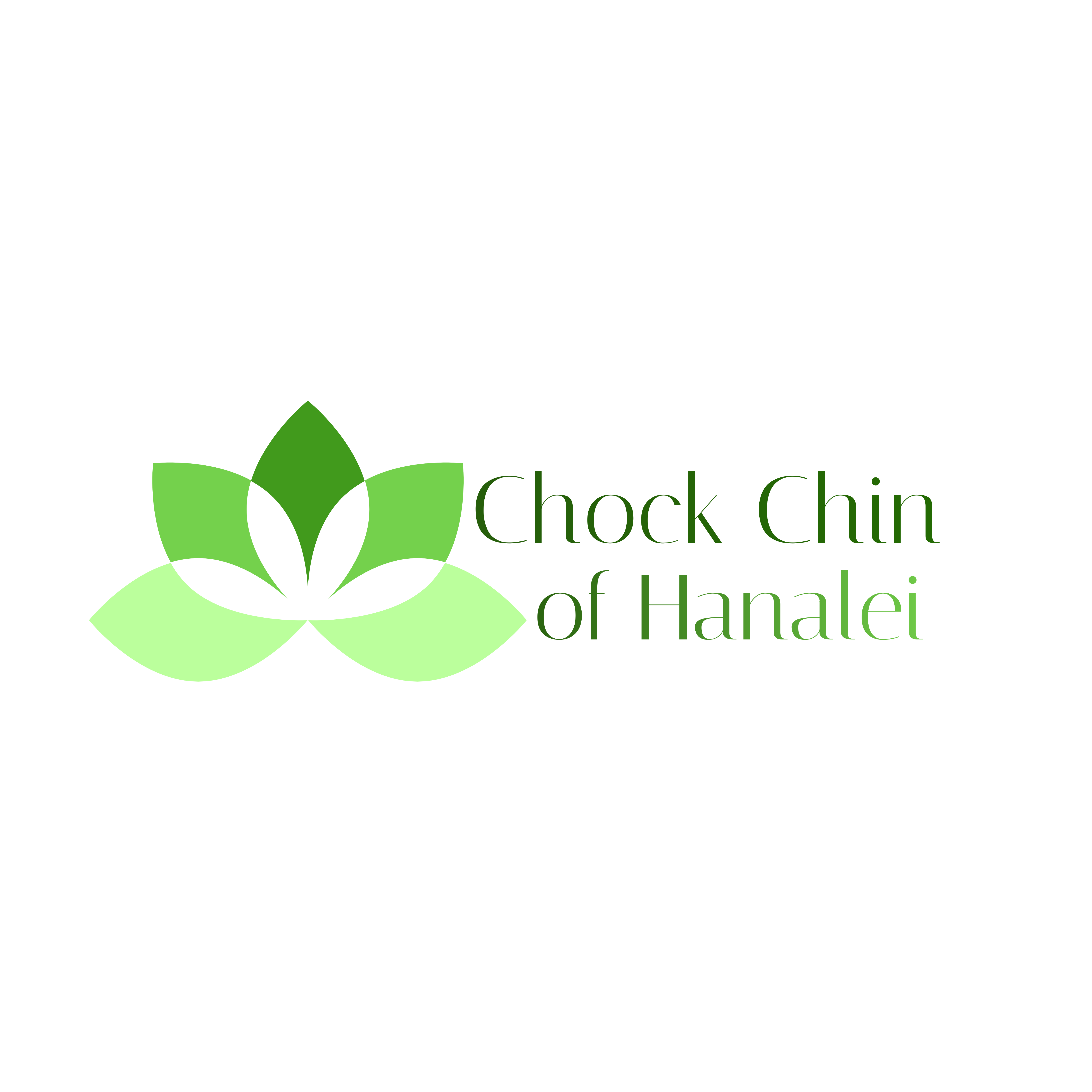Another famous Tang: Tang Shao Yi
The Tang clan of Tang Jia Village was well known in the area. As Louise Skyles told me, “While most of the villagers in the area just barely survived and went overseas to make a living, the Tang clan sent their members overseas to study and learn new skills to be used to benefit China. One of the most famous members of this clan was the first prime minister of China: Tang Shao Yi (1862-1938).”
![]() Here is Tang Shao Yi in our FamilySearch tree.
Here is Tang Shao Yi in our FamilySearch tree.
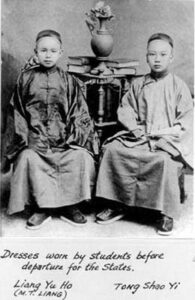
Tong Shao-yi, right, and Liang Yu-ho (Liang Ruhao) before departure for the US [Photo courtesy commons.wikimedia.org]
He was born in 1862 in Tang’s Village of Hsiang-shan (Xiangshan) County (today’s Tangjiawan Town, Zhuhai). His father, Tang Ju Chuan, was a prosperous tea merchant in Shanghai who taught him great generosity by his lifelong example of sharing his abundant wealth with his friends.
His father’s biography sketch in the Tang Zi Ying Jiapu provides an extraordinary example of this generosity, which extended far beyond his family and friends. On a business trip to San Francisco, he saw that many Chinese who had migrated to California as single men to work– prohibited by law from bringing their families–had died in that foreign land without anyone to make sure their bodies were sent back to China to be properly buried in their village. This traditional desire of Chinese to be buried in their ancestral home town is called “Falling leaves return to their roots.”
This so touched his heart, Tang Ju Chuan personally donated the funds to send the deceased back to their hometowns. If the bodies were in remote areas and no workers were willing to go to pick them up, he would go there by himself, and would even clean the decomposed bodies himself before he put them in the wooden boxes and shipped them home.
Because of his great act of kindness, he was honored and respected by many in the San Francisco Bay area.
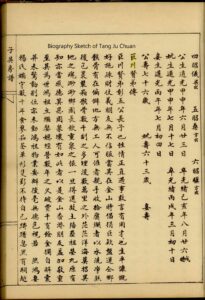
The biography of Tang Ju Chuan in the jiapu.
I think stories such as this are what make these jiapus and zupus so fascinating. It is one thing to know that a person lived and died between specific years. It is quite another thing to discover the choices they made, the lives they touched, and the things they valued most.
![]() Here is Tang Ju Chuan in our FamilySearch tree.
Here is Tang Ju Chuan in our FamilySearch tree.
By such a father Tang Shao Yi was taught that with wealth and privilege came great responsibility to bless the lives of others. This was to be his lifelong practice as well.
Tang Shao Yi was sent to America to get a modern education — an initiative of the Qing dynasty to educate the children of China’s elite so they could help China succeed in a modern age. As a child he attended prestigious schools in Massachusetts and Connecticut, then Queen’s College in Hong Kong and Columbia University in New York.
He became a lifelong friend and loyal ally of Sun Yat Sen (also born in Hsiang-shan (Xiangshan) County) when he was sent as an emissary of the Qing court to negotiate a peace treaty with the southern provinces after the WuChang Uprising.
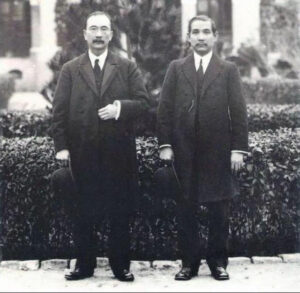
Dr Sun Yat-sen, right, first provisional president of the Republic of China, and Tong Shao-yi, first premier of the Cabinet of the Republic of China, in front of the Presidential Palace in Nanking (Nanjing) on March 25, 1912. [Photo courtesy commons.wikimedia.org]
He made numerous contributions to the establishment of the Republic of China. He was also a lifelong friend of Herbert Hoover, who he met in school, and who became the 31st President of the United States. In his book, “The Memories of Herbert Hoover,” Hoover refers frequently to Tang Shao-yi as a man of “integrity, high caliber, and great ambition for China’s future.”
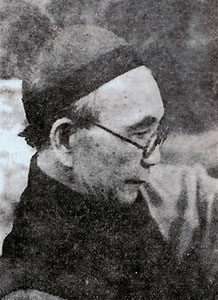
Tang Shao-yi in 1931 [Photo courtesy commons.wikimedia.org]
Having retired to Shanghai in 1937, he was caught up in political entanglements during the Japanese occupation. When General Kenji Doihara attempted to recruit him to serve as president of their new pro-Japanese government, the Kuomintang (Chinese Nationalist Party) feared he would accept, and had him assassinated in his living room on 30 September 1938.
